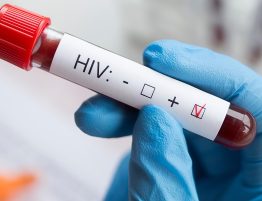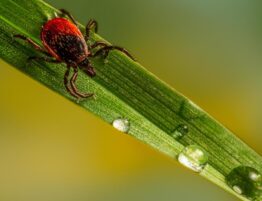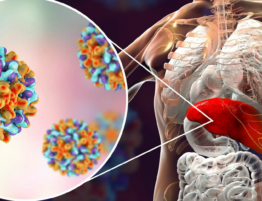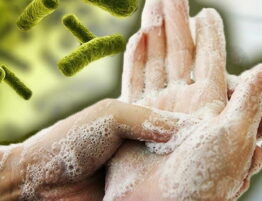
Acute respiratory infections (ARI)
Acute respiratory infections are diseases that are transmitted by airborne droplets and are caused by various pathogens: viruses (adenoviruses, influenza viruses, parainfluenza, respiratory sentinel viruses and others) and bacteria (streptococci, staphylococci, pneumococci and others).
Basically, pathogens of acute respiratory infections are transmitted from person to person through coughing or sneezing of a patient. Anyone in close (approximately 1 meter) contact with another person with ARI symptoms (fever, sneezing, cough, runny nose, chills, muscle pain) is at risk of exposure to potentially infectious inhaled droplets. Viruses can enter the body (eyes, nose or mouth) through hands when touching an infected surface. By maintaining personal hygiene, you can prevent the spread of pathogens that cause respiratory infections.
Basic recommendations for the population:
- Avoid close contact with people who appear unwell, have fever or cough.
- Avoid crowded places or reduce the time you spend in crowded places.
- Try not to touch your mouth and nose.
- Practice hand hygiene – wash your hands frequently with soap and water or use an alcohol-based hand sanitizer, especially if you touch your mouth or nose.
- Increase the flow of fresh air into living spaces, open windows as often as possible.
- Use protective masks when in contact with a sick person.
- Adopt a healthy lifestyle: adequate sleep, balanced nutrition, physical activity, regular walks in the fresh air.
Recommendations for caring for the sick at home
- Isolate the sick person from others, at least 1 meter away from others.
- Cover your mouth and nose when providing patient care using masks.
- Wash your hands thoroughly with soap and water after each contact with someone who is sick. Provide separate towels for each family member.
- In addition to caregivers, the patient should not be visited by other visitors.
- If possible, only one adult in the home should provide care.
- Pregnant women are not recommended to care for the sick.
- Constantly ventilate the room in which the patient is located.
- Keep the area clean using detergents.
Recommendations for persons with ARI symptoms
- If you feel unwell, you should stay at home and follow the doctor’s recommendations, if possible, keep a distance of 1 meter from healthy people.
- Rest, take plenty of fluids.
- Cover your mouth and nose when coughing or sneezing with a handkerchief or disposable tissues. Dispose of this material immediately after use or wash and iron it. Wash your hands immediately after contact with respiratory secretions!
- Wear a mask if you are in a common area of your home near other people.
- Inform your family and friends about the illness.
Recommendations for using masks
- Wearing masks is mandatory for those who have close contact with a sick patient
- Place the mask carefully so that it covers your mouth and nose, and tie it so that the space between your face and the mask is as small as possible.
- When using a mask, try not to touch it.
- After touching a used mask, such as when removing it, wash your hands with soap and water or an alcohol-based hand sanitizer.
- Replace the used mask with a new one as soon as the used mask becomes damp.
- Do not reuse disposable masks.
- Throw away disposable masks after each use and discard them immediately after removal.
Recommendations for parents:
- Teach children to wash their hands frequently with soap and water for 20 seconds. Parents should also follow this procedure, which will serve as a good example for children.
- Teach children to cough and sneeze into a tissue or, if there is no tissue, into the crook of their elbow.
- Recommend that children do not come closer than one and a half to two meters to sick people.
- Sick children should stay at home (not attend preschools and schools).
- Refrain from frequent visits to crowded places.
- If your child has been in contact with someone who has the flu, consult your doctor about the need to take antiviral medications to prevent illness.
What to do if your child gets sick?
- If your child becomes ill, seek medical help from a doctor, call a doctor at home.
- Give your child plenty of fluids (juice, water).
- Create a comfortable environment for the child, calm him down.
- Follow your doctor’s recommendations.
- Keep tissues and a waste basket at a distance that is convenient for the patient.







